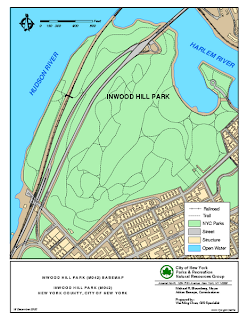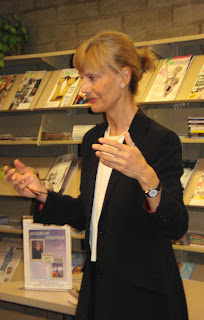I read an article last week, on the subject of
bereavement. One of the points
made was that, in our everything-must-happen-now society, we are expected to
get over loss in a fingersnap – just like we’re supposed to get over every
other big life-changing event. Get
Divorced – well heck, hit match.com, and you’ll be up the aisle again just
like that! Give birth to a child
after Lord knows how many hours in labor, and you’d better be thin enough for spandex
before anyone sees you again, and with a svelte figure and doing Bikram yoga
lickety-split. And if you’re in a
state of grief because someone you love dearly has died, well, just grab one of
the few hundred books out there with seven steps of grieving, twelve steps to
get over it, so many days for this to happen and then that, because heaven forbid
you linger over the “bereavement process.” And don’t get me wrong, some of those books are balm for the
aching soul. But what is the rush
to get people through the most important transitions of life? And when did we
forget that bereavement isn’t just a useful term, but is to do with the
desolate feeling of being bereft.
As some of you know,
last year my lovely father passed away.
But it wasn’t the only loss – some four months before he was diagnosed
with a serious blood disorder, one of my cousins died, and as fate would have
it, my father’s diagnosis came just after another much-loved cousin passed away following
a year in hospital undergoing treatment for leukemia. Then, thirty-six hours after my father passed away, my husband’s
mother died.
So I’ve had a lot of
time to think about grief, and to think about this process we call bereavement,
and I think we have to find a way between “Just get over it” and the Victorian
way of mourning. You see, you
don’t hear that word so much any more, that someone is in mourning. Yet even the
tone of the word seems to describe that pull on the heart. I’m not suggesting we go back to a time
when one wore widow’s weeds, but it was once the protocol – if that is the
right word – that when you were in mourning you wore black for a year. This told people you were bereaved, so
they understood. There have been times when I would have liked a bit of
understanding – for example, the time I was a bit tardy getting my things together in the line at the grocery store because the
sneaker wave of grief had just hit me when I noticed a big bag of liquorice
allsorts, and my dad loved liquorice allsorts. I was remembering the day I came home with a massive jar of them, and he laughed and wondered
how many would be left for him, because, in truth, he didn’t eat many candies,
but liked to have them in the cupboard to pick at one now and again, though in
the meantime my Mum and my brother and I worked our way through that jar in
next to no time. Suddenly a very cross voice behind me in the line was telling me to get on because he didn't have all day.
A memory can come back to you
unbidden, and suddenly your eyes are filling with tears and you’re fumbling around and you wish
that someone would realize that you’re just remembering and hurting and you
want to howl with the pain of missing that person. Instead people are looking at you as if you’ve been on the
bottle since you got up this morning. But how would they know? In my grandmother’s day, after the bereaved had worn black for a year, they wore something purple each day - it was the
shade that told the world you were coming out of it, that you had managed to
weather a year of anniversaries, and you were ready for society again.
And I think it does
take a year, for that first dreadful grief to lift. There’s
been the anniversary of the day I decided to call his doctor one week into my
book tour last year (while at Left Coast Crime) – I just knew it was more serious than my mother was letting on, and in one conversation had
scribbled the name of his doctor, who spent 45 minutes on the 'phone
telling me everything I needed to know.
I asked him “how long” and with his response ringing in my ears, I was
back in the UK a week later – this time last year. Another anniversary. Then there was the first major
emergency room rush in the middle of the night, and then the second, and then
the hospice, but in the midst of that there were the days when I would take my
parents in the car for a drive, just to get us all out of the house – and a
month ago, when I was doing my taxes I found receipts from the last two times I
was able to take my mum and dad out for dinner. And it hit me again – the sneaker wave of grief.
So, I think whoever
wrote that article has a point. A
time of mourning is not prescriptive.
Another friend’s father died at the end of last year, and a couple of
weeks ago she shared with me that one of her friends expressed surprise that
she was not “over” it yet. What is
happening when we expect to be over everything so quickly? Strangely enough, I see a parallel in
the way we treat newborns. So
often I see parents in a restaurant
- a noisy place with bright lights and people everywhere – and they have
a baby with them who is clearly only a week or two old. It’s not going to kill the child, but
there is something that doesn’t sit well with me, as if everyone is so keen to
just get going with life again, that respect for the beginning of life is given
the same short shrift as a time of mourning at the end.
This is a year of
anniversaries, and by the end of the summer my family will have weathered many firsts.
But in the meantime, if I linger in the line at Safeway, it could be
because I can hear my Dad saying, “Ain’t it great over here, Jack - they’ve even got a bloke who puts
your groceries in a bag for you.”
I’ll try not to hold up the line, I’ll do my best not to snivel as I’m
paying – but the sneaker wave just hit me again.
And today is Good Friday, heralding the start of my favorite holiday - Easter. It's a time of new life, new beginnings, and with the promise of spring, even though many of you are snowed in. Me? Well on Sunday I'm heading out to Chicago (brrrr), on the next leg of my book tour - hope to see you along the way if I'm in your neck of the woods (www.jacquelinewinspear.com/appearances). Have a lovely weekend,














































